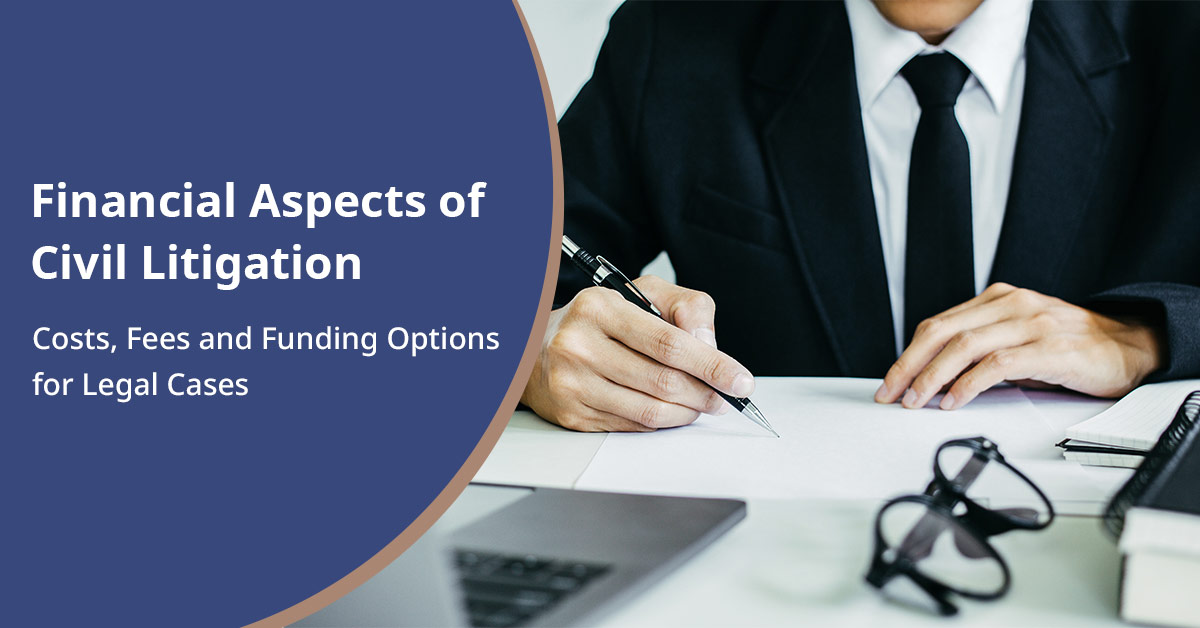Civil litigation can be a costly endeavor, and understanding the financial aspects is crucial for anyone considering legal action. The costs associated with civil litigation include attorney fees, court costs, and various expenses related to gathering evidence and expert testimony. Additionally, funding options are available to help litigants manage these financial burdens. Here’s an in-depth look at the financial aspects of civil litigation:
Attorney Fees
Attorney fees are often the most significant expense in civil litigation. These fees can be structured in various ways, depending on the nature of the case and the agreement between the lawyer and the client:
Hourly Rate: Many attorneys charge an hourly rate for their services. This can range widely based on the lawyer’s experience, the complexity of the case, and the region.
Contingency Fee: In some cases, particularly personal injury lawsuits, insurance cases and debt collection cases, attorneys may work on a contingency fee basis. This means the lawyer only gets paid if the client wins the case, typically receiving a percentage of the settlement or judgment.
Flat Fee: For certain types of cases, such as straightforward contract disputes or small claims, attorneys might charge a flat fee for their services.
Retainer Fee: Some attorneys require a retainer, an upfront payment that covers initial legal expenses. As the case progresses, the attorney bills against this retainer and may require additional funds if it is depleted.
Court Costs and Expenses
Beyond attorney fees, there are several other costs associated with pursuing a civil lawsuit:
Filing Fees: Initiating a lawsuit requires paying filing fees, which can vary by jurisdiction and the type of case.
Service Fees: Serving legal documents to the opposing party involves additional costs.
Discovery Costs: The discovery process, which includes depositions, interrogatories, and requests for documents, can be expensive. Costs for obtaining and reviewing documents, as well as fees for court reporters and videographers, add up quickly.
Expert Witness Fees: Expert witnesses are often essential in civil litigation to provide specialized knowledge. These experts charge for their time spent preparing reports, giving depositions, and testifying in court.
Miscellaneous Expenses: Other costs can include travel expenses, costs for copying and printing documents, and fees for private investigators.
3. Funding Options
Given the high costs of litigation, various funding options can help plaintiffs and defendants manage expenses:
Legal Aid: For those who cannot afford legal representation, legal aid organizations offer free or low-cost services. Eligibility is typically based on income and the type of case.
Litigation Funding: Third-party litigation funding companies provide financial assistance to plaintiffs in exchange for a portion of the settlement or judgment. This non-recourse funding means that if the plaintiff loses the case, they owe nothing to the funding company.
Legal Expense Insurance: Some individuals or businesses purchase legal expense insurance, which covers legal costs in the event of a lawsuit. Policies vary in terms of what is covered and the limits of coverage.
Crowdfunding: In some cases, individuals may turn to crowdfunding platforms to raise money for their legal expenses. This can be an effective way to gather support from the community or interested parties.
Pro Bono Services: Some attorneys offer pro bono (free) legal services for cases that serve the public interest or for clients who cannot afford to pay. This is more common in certain types of cases, such as civil rights or public interest litigation.
Conclusion
The financial aspects of civil litigation are complex and multifaceted, encompassing attorney fees, court costs, and various other expenses. Understanding these costs and exploring available funding options is essential for anyone involved in or contemplating a lawsuit. Effective financial planning and management can make the difference between a feasible legal pursuit and an overwhelming financial burden. By considering factors such as fee structures, potential expenses, and funding options, litigants can navigate the financial challenges of civil litigation more effectively, ensuring they have the necessary resources to pursue or defend their case.
